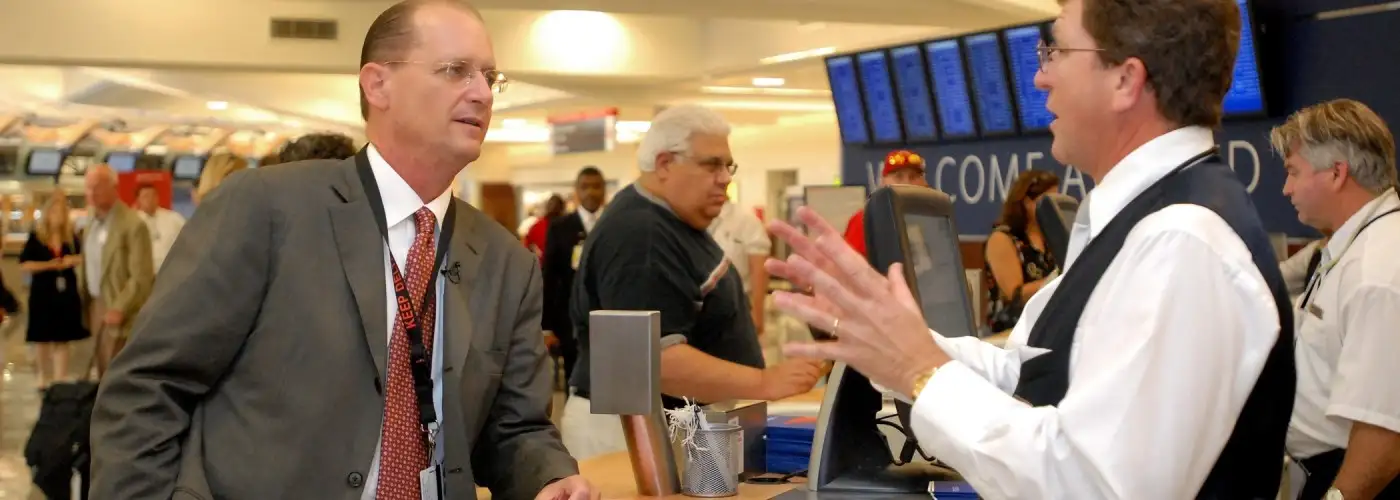In the past few weeks, the media din surrounding the current rush toward airline mergers and consolidation has been practically deafening. There’s no shortage of proponents and opponents, but on analysis, it turns out that few on either side have evaluated the mergers from a consumer perspective.
Here’s a somewhat random compilation of the various stakeholders’ positions, culled from recent coverage of the proposed Delta-Northwest merger, the ongoing United-US Airways merger negotiations, and the discussions between American and Continental.
Delta chief Richard Anderson was an opponent of mergers when US Airways made a hostile overture to acquire Delta in late 2007, but is a merger cheerleader now that his company is in the dominant position in the pending tie-up with Northwest.
Virgin Atlantic’s Richard Branson has come out publicly against the alliance (not a merger per se) among American, Continental, and British Airways. His vested interest: If Continental allies with British Airways, it would be the end of the current marketing cooperation between Continental and Virgin.
US Airways’ Doug Parker and United’s Glenn Tilton have both touted mergers as a necessary response to the industry’s current woes.
The lawyers and accountants and consultants and investment bankers who stand to reap hundreds of millions of dollars in merger-related fees have an obvious financial interest in the mergers’ going forward.
Securities analysts, who are often quoted in major media coverage of the mergers, view consolidation through the lens of stock prices. Whatever serves to drive those prices higher is desirable, and vice versa.
Owners of the stock of merger prospects predictably fall in line behind whatever course will maximize the value of their shares.
Congress views the mergers according to the vested interests of individual legislators. Senator Charles Schumer of New York, whose state would be mostly unaffected by a Delta-Northwest merger, was on board. His comment, as reported in the Atlanta Journal-Constitution: “My preliminary review of this merger is that it’s a good one.”
By contrast, Representative James Oberstar, whose state of Minnesota would lose Northwest’s headquarters and its associated jobs, has been highly critical of the tie-up, characterizing it as “probably the worst development in aviation” since deregulation in 1978. In the same Bloomberg report, Oberstar made one of the few references to the merger’s impact on the traveling public, warning that “there will be more monopoly power at hubs,” and that low-fare airlines “will not be able to compete.”
And Senator Johnny Isakson of Georgia, where the combined Delta and Northwest would be headquartered, supports the merger.
Reaction among affected unions has been a mixed bag. Delta’s pilots union, whose members are expected to fare better than Northwest pilots when the two groups are combined, has signaled its approval of the merger. Northwest pilots are balking, as are ground workers and flight attendants.
(Note that the discord persists between both the pilots and flight attendants unions of American West and US Airways, long after those two carriers merged in 2005 to form the current US Airways.)
Many voices, many interests, many opinions. But the great majority of those whose opinions have received a public stage are parties whose interests are unrelated to those of the traveling public, and in fact may be diametrically opposed.
We’re now waiting for what may be the most important opinion of all, that of the Department of Justice, whose approval is required if the Delta-Northwest merger is to be completed.
Delta will be making a full court press to persuade the DOJ to give the merger the go-ahead, including extensive, and expensive, behind-the-scenes efforts by lobbyists such as former Senators Trent Lott and John Breaux.
In 2007, Northwest served 66.4 million customers; Delta served more than 100 million. Allowing for duplication and overlap, let’s say that the two carriers combined flew 100 million people last year. These customers want good service at reasonable prices, to put it simply. Who is speaking for them, and their interests, against the interests of the handful of airline executives and others whose financial interests are served by airline mergers?
The answer, it would seem, is a very few consumer advocacy journalists, and even fewer Congressmen, whose real concern is the loss of jobs in their districts.
If I were a betting man, I’d put money on the Delta-Northwest merger being approved, and the same with a United-US Airways after that. But I’d be betting against my own horse—I have no doubt that the planned mergers will result in higher fares with no improvement in service.
What I find infuriating is not that the interests of the few will trump the interests of the many. It is that the losing side will never have had a full hearing in what should be a full, fair, and open debate.
We hand-pick everything we recommend and select items through testing and reviews. Some products are sent to us free of charge with no incentive to offer a favorable review. We offer our unbiased opinions and do not accept compensation to review products. All items are in stock and prices are accurate at the time of publication. If you buy something through our links, we may earn a commission.
Related
Top Fares From
Today's Top Travel Deals
Brought to you by ShermansTravel
Kenya: 14-Night Tour, Incl. Tanzania &...
smarTours
 vacation
$7125+
vacation
$7125+
7-Night Caribbean Round-Trip Cruise From Orlando:...
Norwegian Cruise Line
 cruise
$739+
cruise
$739+
Ohio: Daily Car Rentals from Cincinnati
85OFF.com
 Car Rental
$19+
Car Rental
$19+




